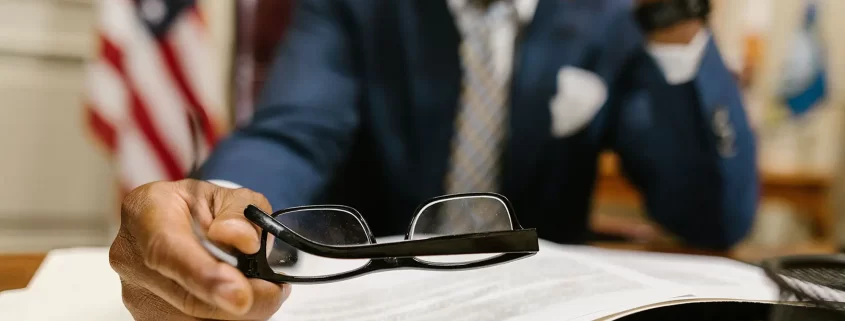Motion to Compel
A motion to compel is a document filed with a court asking for someone to produce “discovery” as part of a lawsuit. A motion to compel may ask the court to require someone to produce documents, the answer to a question, a witness for a deposition or some other form of discovery that the person is refusing to turn over. Motions to compel happen in the discovery phase of a lawsuit.
Pennsylvania Discovery Process
In state court in Pennsylvania, motions to compel are not considered appropriate until one has made an attempt to “meet and confer” with the other side. This means that in addition to a discovery request which is answered by objections or a non-answer, the party seeking the discovery is expected to either send a letter, have a phone call, or have other conversations with opposing counsel or the other party in an effort to work out the dispute before asking the court to intervene. This is based on the principle that courts do not want to be involved in matters unless they absolutely have to be.
In many counties, including Berks County, a discovery dispute has been referred to a discovery master. A discovery master is a private attorney who has nothing to do with the case who is hired by the county to hold weekly hearings and issue recommendations on discovery disputes. The presiding judge in a case reviews and usually approves these recommendations. In putting together a motion to compel and in proceedings before a discovery master, the important points to stress are why the discovery is relevant to the case, why it cannot conveniently be obtained somewhere else, and why the other party’s claims of privilege or objection are not appropriate.
Federal Court Discovery Process Requires Meet and Confer
Federal Court rules are similar. Federal judges want the parties to “meet and confer” as discussed above, and some judges in the Eastern District of Pennsylvania prohibit the filing of any motion without a teleconference with the presiding judge to explain why “meet and confer” failed to solve the problem. Furthermore, federal judges tend to be a little more willing to parse through lists of documents and demand production than some of their state court counterparts. This depends, of course, on the specific judge.
Conclusion: Discovery is Key to Litigation Success
Discovery is where cases are won and lost, and insisting on documents and answers in a case is an important part of being ready for trial. At Cornerstone Law Firm, our litigation attorneys deal with discovery disputes regularly, and we can help you with your case. Call us today for a consultation on your rights and obligations in discovery.



